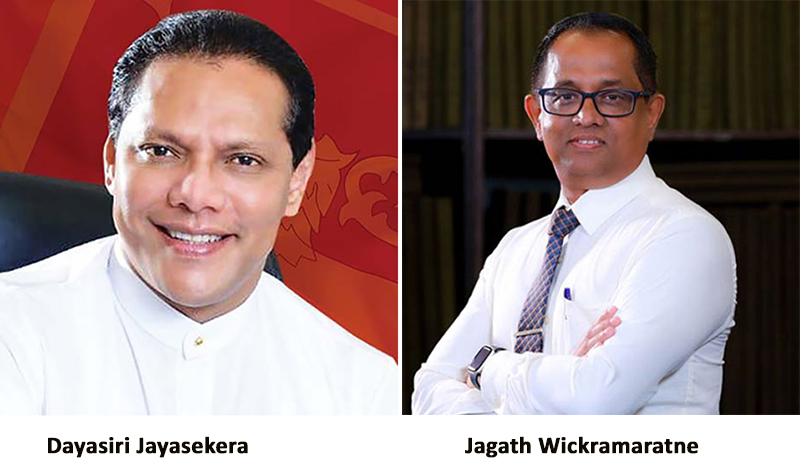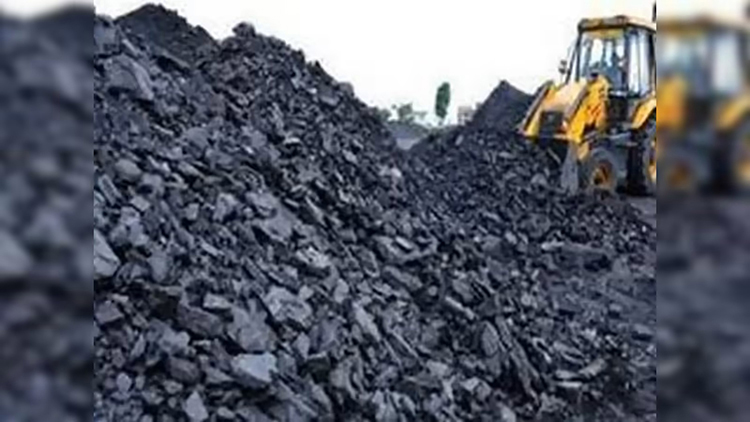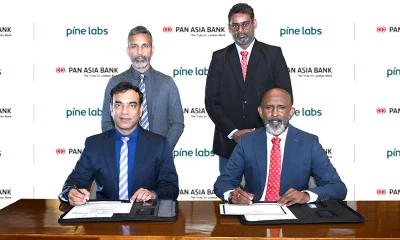News
Iran wants US to lift sanctions against Lebanon

Protesters took to the streets of Beirut to vent their fury at their government, which they accuse of negligence following evidence that authorities knew about the ammonium nitrate and did nothing for seven years. [ Pic courtesy Anadolu Agency]
Iran wants the United States to lift sanctions against Lebanon and wants other countries to refrain from politicising last week’s Beirut explosion that killed at least 158 people and left more than 6,000 wounded.
Iran’s comments on Monday come a day after international leaders pledged $300m in humanitarian assistance to Lebanon following the devastating explosion that also left more than 300,000 people homeless in the capital city.
“The blast should not be used as an excuse for political aims … the cause of the blast should be investigated carefully,” Iran’s Foreign Ministry spokesman Abbas Mousavi told a televised news conference on Monday.
“If America is honest about its assistance offer to Lebanon, they should lift sanctions.”
The international aid announced on Sunday would be “directly delivered to the Lebanese population” and offered support for an “impartial, credible and independent inquiry”.
“Lebanese authorities must now implement political and economic reforms demanded by the Lebanese people and which alone will enable the international community to act effectively alongside Lebanon for reconstruction,” said French President Emmanuel Macron, who chaired the virtual donor conference.
Macron visited Beirut’s shattered streets on Thursday, two days after the chemical explosion in the dock area. Asked about the visit, Mousavi said: “Some countries have been trying to politicise this blast for their own interests.”
The explosion, whose mushroom cloud reminded many of an atomic bomb, left a 43-metre-deep (141-foot) crater at Beirut’s port, said a security official, citing French experts working in the disaster area.
It was triggered by 2,750 tonnes of ammonium nitrate, which had been stored at a port warehouse since 2013.
Protesters have taken to the streets of Beirut to vent their fury at their government, which they accuse of negligence following evidence that authorities knew about the ammonium nitrate and did nothing for six years.
Police and the army responded with tear gas and rubber bullets, resulting in hundreds of protesters being wounded. At least one policeman has been killed, security forces said.
“Those who died paid the price of a state that doesn’t care about anything except power and money,” said protester Tamara, 23, whose friend Rawan, 20, was killed in the blast.
“It’s not enough that ministers resign,” said her friend Michel. “Those who put the explosives there must be held accountable. We want an international tribunal to tell us who killed [Rawan].”
Al Jazeera’s Zeina Khodr, reporting from Beirut, said people are “disillusioned” because they are up against a “militarised state”.
“Protesters are not under any illusion that changing or getting rid of the political and security establishment that has been in place for decades is going to be easy,” she said, speaking from the capital Beirut.
The protesters demand the wholesale removal of Lebanon’s ruling class, which they see living in luxury while millions endure job losses, deepening poverty, power blackouts and mountains of rubbish piling up in the streets.
Two ministers, Information Minister Manal Abdel Samad and Environment Minister Damianos Kattar, resigned from their posts over the weekend, leading embattled Prime Minister Hassan Diab to propose early elections in order to break the impasse that is plunging Lebanon ever deeper into political and economic crisis.
Nine other members of parliament have also stepped down, but according to Khodr, those in power are adamant about keeping the government in place.
“There were reports that other ministers wanted to tender their resignation, but after intense negotiations behind closed doors, a minister belonging to the Hezbollah camp emerged and said: ‘We are not resigning, the government is still standing, and we will continue to carry out our duties and responsibilities towards our people’,” she said.
News
CIABOC probe: CC under pressure to ask Speaker to step down as Chairman

Dayasiri questions legitimacy of appointments made by Council
The Constitutional Council (CC) should ask its head, Speaker Dr. Jagath Wickramaratne, to step down temporarily pending an investigation by the Commission to Investigate Allegations of Bribery or Corruption (CIABOC) into a complaint lodged by sacked Deputy Secretary General of Parliament Chaminda Kularatne, SJB MP Dayasiri Jayasekera has said.
Former Minister Jayasekera said so in response to The Island queries pertaining to Kularatne’s recent complaint to the CIABOC.
Jayasekera pointed out that the CC, which is responsible for key appointments, couldn’t afford to have a person under CIABOC investigation as its head. “We have never experienced a similar situation since the establishment of the CC in 2000,” the Kurunegala District lawmaker said.
Parliament introduced CC under the 17th Amendment to the Constitution. It was abolished in 2010, reinstated in 2015 through the 19th Amendment, then replaced by a Parliamentary Council in 2020, and reintroduced via the 21st Amendment in October 2022.
MP Jayasekera said that the NPP government had turned a blind eye to his recent request made in Parliament for the Speaker to step down. He said that subsequently he had discussed the issue with other MPs and they were of the view that Dr. Wickramaratne’s continuation as the Chairman of the CC undermined the integrity of the council.
A parliamentary committee headed by Dr. Wickramaratne sacked Kularatne on January 23 over alleged irregularities pertaining to his appointment as Deputy Secretary General of Parliament and Chief of Staff. Kularatne lodged the complaint with the CIABOC on 2 February.
Austin Fernando, Professor Wasantha Seneviratne and Ranjith Ariyaratne were appointed as non-Members of Parliament to the CC on 23 January, the day Parliament sacked Kularatne.
MP Jayasekera said that the CC should discuss the issue with the Speaker. Political parties represented in parliament should intervene to ensure that the controversy over the Speaker’s conduct didn’t undermine the apex body.
The CC consists of Prime Minister Dr. Harini Amarasuriya (Ex-officio), Speaker Dr. Jagath Wickramaratne (Ex-officio), Leader of the Opposition Sajith Premadasa (Ex-officio), one MP appointed by the President (Bimal Rathnayake), five persons appointed by the President, upon being nominated as follows: one MP nominated by agreement of the majority of the Members of Parliament representing the Government (Aboobucker Athambawa, M.P), one MP nominated by agreement of the majority of the MPs of the political party or independent group to which the Leader of the Opposition belongs—Ajith P. Perera—and three persons nominated by the Speaker by agreement of the Prime Minister and the Leader of the Opposition—Austin Fernando, Professor Wasantha Seneviratne and Ranjith Ariyaratne—and one MP nominated by agreement of the MPs other than those representing the Government and those belonging to the political party or independent group to which the Leader of the Opposition belongs, and appointed by the President (Sivagnanam Shritharan, M.P).
The CC recommend nominations to the President for the appointment of Chairpersons and Members of Election Commission, Public Service Commission, National Police Commission, Audit Service Commission, Human Rights Commission of Sri Lanka, Commission to Investigate Allegations of Bribery or Corruption, Finance Commission, Delimitation Commission and National Procurement Commission.
Jayasekera asked how Dr. Wickramaratne could continue as CC head as appointments to CIABOC, too, are made by the 10-member body.
The CC also approve/disapprove recommendations by the President for the appointment Chief Justice and the Judges of the Supreme Court, President and the Judges of the Court of Appeal, Members of the Judicial Service Commission, other than the Chairman, Attorney-General, Governor of the Central Bank of Sri Lanka, Auditor-General, Inspector-General of Police, Parliamentary Commissioner for Administration (Ombudsman) and Secretary General of Parliament.
MP Jayasekera said that it would be really interesting to see the response of the newly appointed civil society members to the developing situation. The SJBer pointed out that the recent appointment of Samudika Jayaratne, a Senior Deputy Auditor General as the Auditor General was made after Kularatne moved the CIABOC against the Speaker.
The JVP and NPP, having preached other political parties of transparency, couldn’t pretend the Speaker’s issue was not serious. Dr. Wickramaratne was appointed Speaker in Dec 2024 after Asoka Ranwala had to step down after being exposed for making false higher education qualifications.
by Shamindra Ferdinando
News
Auditor General urged to probe coal scam

The Electricity Consumers’ Association (ECA) Friday (6) called on newly appointed Auditor General Samudika Jayarathne to begin her tenure by launching an investigation into the controversial coal procurement deal, which has drawn widespread public criticism.
Addressing a media briefing in Marandagahamula, Gampaha, ECA Secretary, Sanjeewa Dhammika, said the probe should be conducted independently. The appointment of a new Auditor General, following a vacancy of nearly six to seven months, was a crucial step in restoring the effectiveness of the state audit system, he said, extending congratulations to Jayarathne.
Dhammika urged the Auditor General to carry out a swift, independent investigation into the questionable coal procurement deals, alleging that they had caused significant economic and environmental harm to the country.
He called for the findings of such an investigation to be disclosed to the public as a priority.
He also called for an immediate audit of Lanka Transformer Ltd, which has faced severe criticism from the Committee on Public Enterprises (COPE). Dhammika said the audit should reveal details of alleged irregularities, identify those responsible, and disclose any misuse of public funds.
Noting that the government held a substantial share in Lanka Transformer Ltd, he stressed that the matter constituted a direct responsibility of the State.
“The audit system should not function to provide political protection, but to safeguard public funds,” Dhammika said, adding that the Association expected the new Auditor General to uphold this principle.
By Anuradha Hiripitiyage
News
First-ever monkey holding centre to be set up in Matale

A 150-hectare site near the Kalu Ganga Reservoir in Matale District has been earmarked for Sri Lanka’s first-ever holding centre for Toque Macaques, the Department of Wildlife Conservation (DWC) announced.
The centre will feature water, food, and security facilities, providing a safe environment to manage macaques that cause damage in nearby communities. The Matale District Development Committee has approved the project, following a recommendation from the DWC.
Wildlife Range Officer Chamath Lakshman Perera told the Committee that similar holding centres operate in several countries, including Malaysia. A total of Rs. 283.87 million has been allocated for the project.
Under the plan, macaques causing destruction will be captured and relocated to the centre. Population control measures will include fitting loops on female monkeys to prevent breeding. The facility will be secured to ensure the animals cannot escape back into the wild.
Officials said the site has sufficient natural food sources, but additional supplies will be provided if necessary. Each macaque is expected to require around 70 grams of food per day.
The project aims to balance wildlife conservation with community protection, offering a model for managing human-macaque conflicts in the country, Perera said.
by Nimal Gunathilake
-

 Business2 days ago
Business2 days agoZone24x7 enters 2026 with strong momentum, reinforcing its role as an enterprise AI and automation partner
-

 Business6 days ago
Business6 days agoSLIM-Kantar People’s Awards 2026 to recognise Sri Lanka’s most trusted brands and personalities
-

 Business1 day ago
Business1 day agoRemotely conducted Business Forum in Paris attracts reputed French companies
-

 Features1 day ago
Features1 day agoMy experience in turning around the Merchant Bank of Sri Lanka (MBSL) – Episode 3
-

 Business6 days ago
Business6 days agoAPI-first card issuing and processing platform for Pan Asia Bank
-

 Business2 days ago
Business2 days agoHNB recognized among Top 10 Best Employers of 2025 at the EFC National Best Employer Awards
-

 Business1 day ago
Business1 day agoFour runs, a thousand dreams: How a small-town school bowled its way into the record books
-

 Business2 days ago
Business2 days agoGREAT 2025–2030: Sri Lanka’s Green ambition meets a grid reality check













